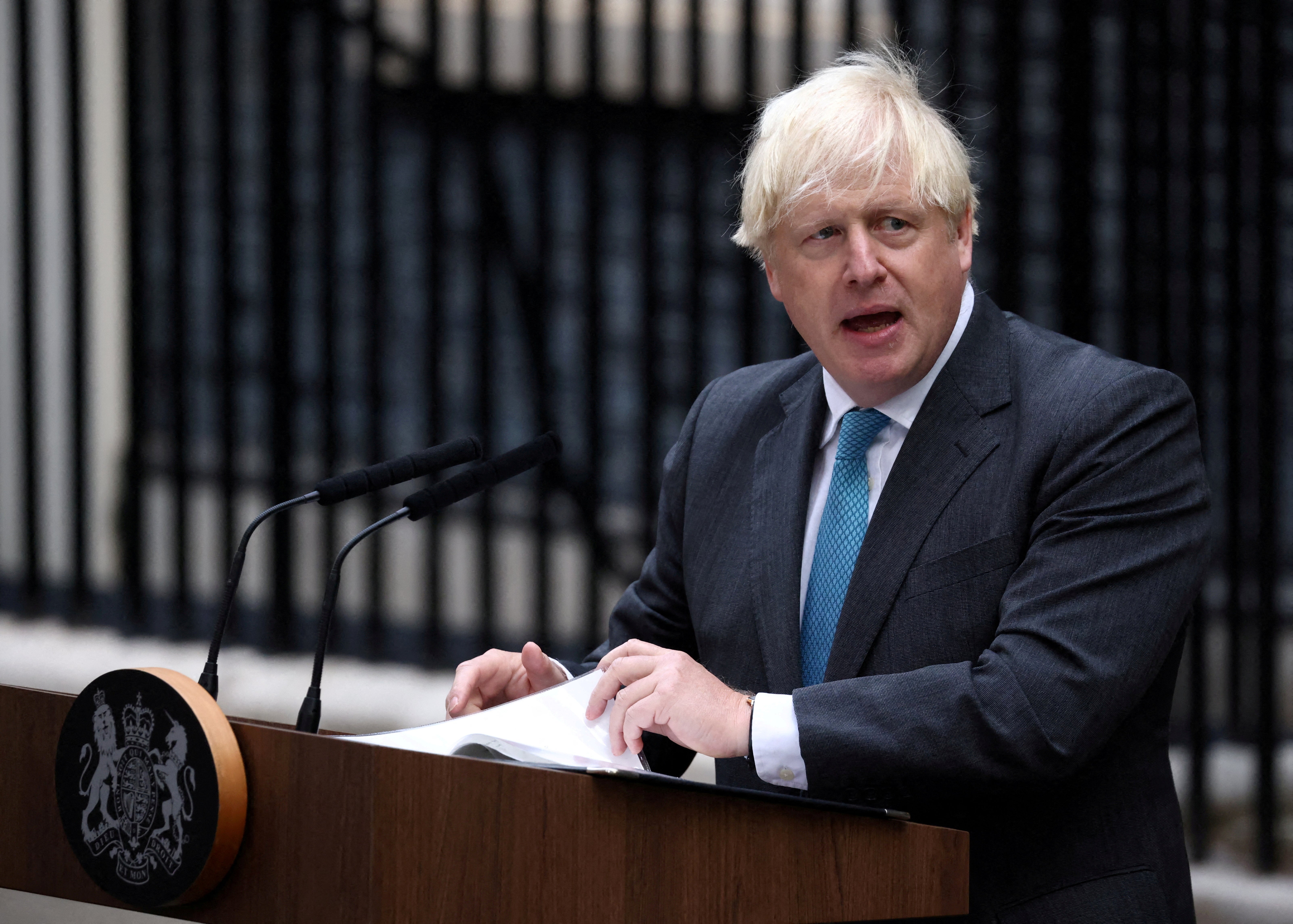Boris Johnson’s final speech hit all the wrong notes – no one likes a sore loser
‘Woe is me. Me, me, me,’ were Johnson’s parting words, as he refused to acknowledge that millions of citizens who had willed him to succeed felt let down by him, writes John Rentoul


Graceless to the end, Boris Johnson’s parting words in Downing Street were all about him. He started by complaining that he had been robbed. In a couple of hours, he said, “the baton will be handed over in what has unexpectedly turned out to be a relay race – they changed the rules halfway through, but never mind that now”.
The nameless “they” of conspiracy theories through the ages. He meant the executive of the 1922 Committee, which was elected by Conservative backbench MPs. Of course, they didn’t change the rules, but it was clear that they would have done if he hadn’t announced his resignation. As so often, what Johnson said was untrue, yet there was some truth in it.
He had won a vote of confidence among his MPs on 6 June, but a month later it was evident that a majority of them wanted him out and that the rules would be changed to get him out.
“Woe is me. Me, me, me,” Johnson’s speech went on, refusing to acknowledge that millions of citizens who had willed him to succeed felt let down by him. He obviously feels that they are wrong to feel that way – that is an understandable human response, but the rules of democracy are that you have to pretend to think that the people are right. A tiny hint of apology would have been the dignified thing to do at this point. Just the merest suggestion that he might have played some part in his downfall.
But no, he went straight into a recitation of his great achievements. Brexit. Vaccines. Ukraine. Doubts lurk behind each of those headlines, but the fair-minded observer would be prepared to grant him net credit for them. Less so the attempt to spin the thin business of a brief, crisis-ridden premiership as some kind of solid rebuilding for the future. He stumbled three times over how many new hospitals would be built and when, eventually settling on 40 by the end of the decade, which is conveniently eight years away.
He repeated “gigabit broadband” as if he was personally responsible for the onward march of telecommunications technology; something about roads; a mention of wind power, a legacy of brave decisions by Labour and coalition governments which he opposed at the time; and one of his most transparent overclaimings, “a new nuclear reactor every year”.
He was entitled to be pleased and a bit surprised that unemployment is “down to lows not seen since I was about 10 years old and bouncing around on a space hopper”, mainly thanks to decisions taken by Rishi Sunak, and probably about to go up again through the fault of no British politician.
But he could not leave the great issue of the day alone, namely the grave injustice done to him, cut off at an unhappy juncture before he was ready to go. In one sentence he pretended to have come to terms with it: “Let me say that I am now like one of those booster rockets that has fulfilled its function, and I will now be gently re-entering the atmosphere and splashing down invisibly in some remote and obscure corner of the Pacific.”
To keep up to speed with all the latest opinions and comment, sign up to our free weekly Voices Dispatches newsletter by clicking here
In the next he switched metaphors and revealed that he very much had not accepted that it was over: “And like Cincinnatus I am returning to my plough.” The thing about old Lucius Quinctius is that he was real, but the only story that anyone knows about him is probably a myth – that he was recalled from his plough to put down some uppity plebs and didn’t stay on as dictator a day longer than required.
How typically Johnson to use a Roman legend about benign and self-effacing leadership to advertise his bitterness and his determination to return to office. How undermining of his successor, who he didn’t even pretend to praise, and how utterly counterproductive. There is nothing in the accounts of Cincinnatus about his complaining about the rules being changed when he gave up power.
The reason for some of the polite fictions of democracy is that, although the British love nothing better than a loser, they don’t like a sore loser. If Johnson had been generous is his praise for colleagues, showed the slightest sign of contrition for those few occasions when he failed to live up to the high expectations the British people had of him, and sounded sincere in his embrace of remote obscurity, he might have had the tiniest, unlikely chance of making a comeback.
As it was, his gracelessness at the end guarantees that, although he has plenty of scope to cause trouble for Liz Truss, he has no prospect whatsoever of the British people deciding that he wasn’t so bad after all and demanding his return.






Join our commenting forum
Join thought-provoking conversations, follow other Independent readers and see their replies
43Comments